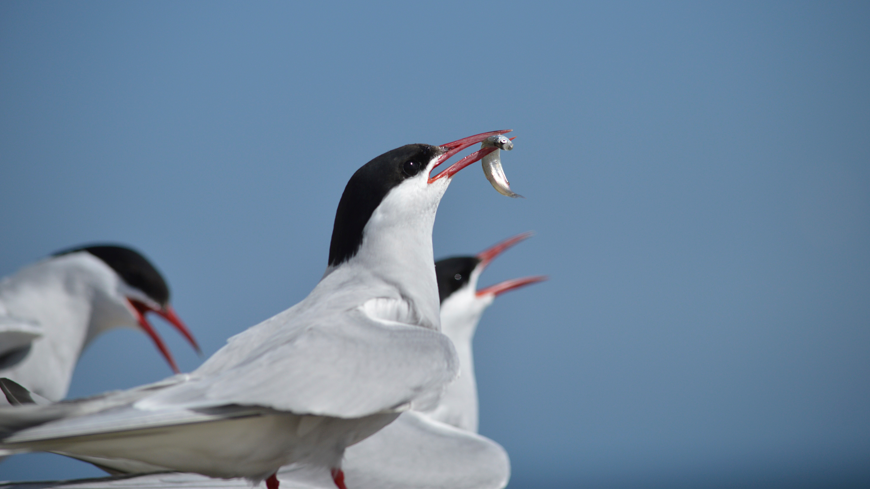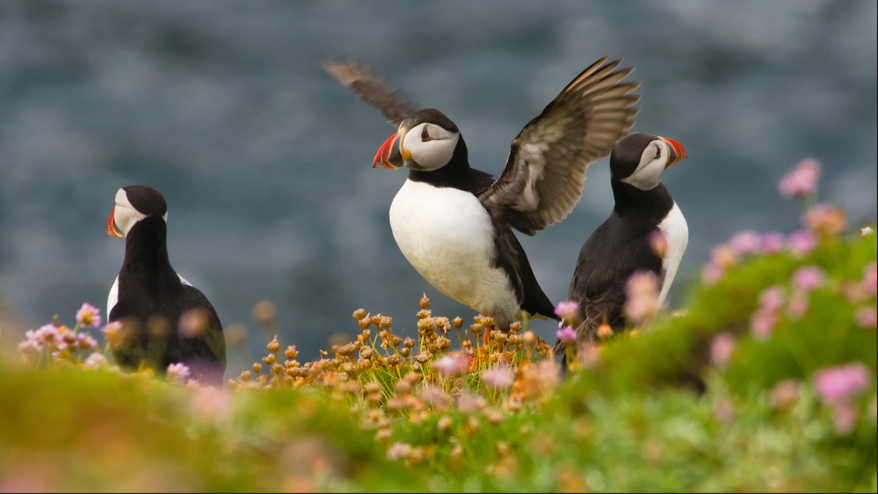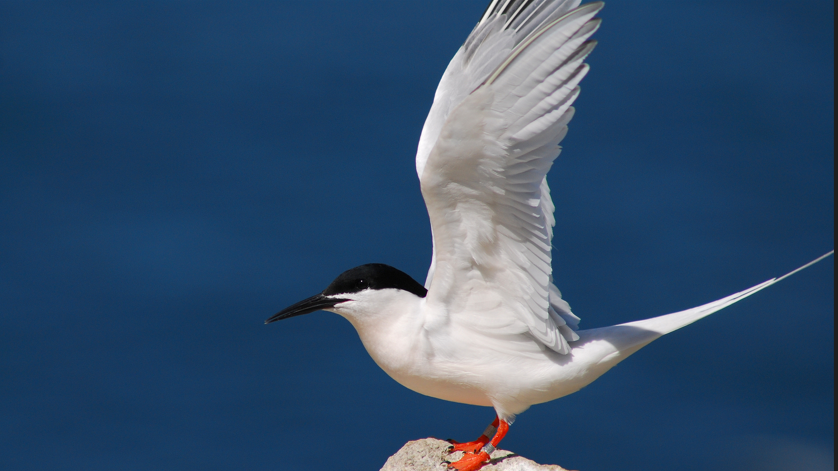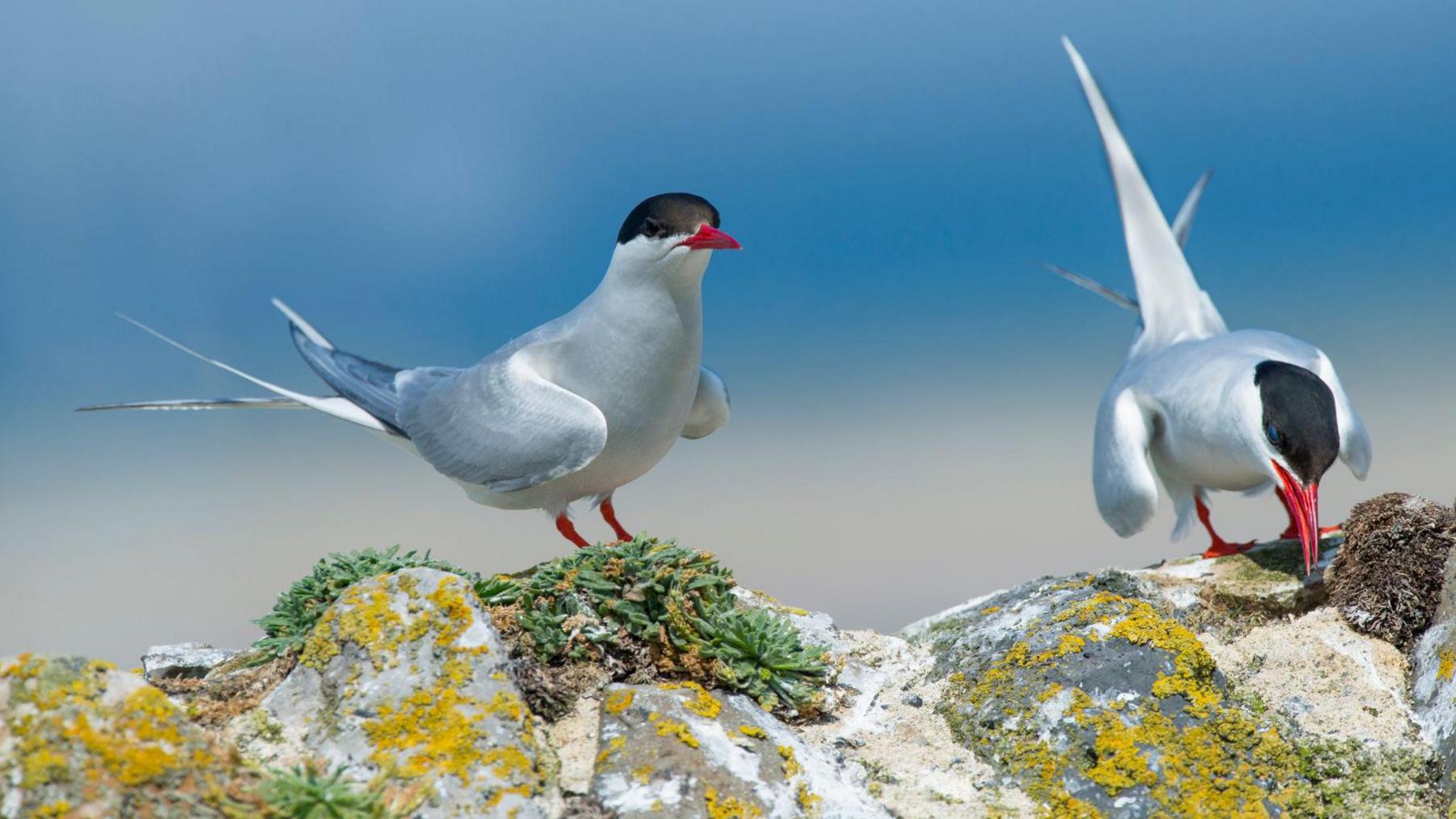Island fears for birds added to red list

Coquet Island is home to several hundred pairs of Arctic terns
- Published
A warden on an island which is home to hundreds of nesting pairs of Arctic terns says she is saddened at the birds' appearance on the red list of most concern.
Rebekah Goodwill is part of a team on Coquet Island, off the Northumberland coast, which is home to some of the UK's rarest seabirds.
Along with roseate terns, kittiwakes, herring gulls and puffins, the reserve now has five species of seabirds on the red list.
Ms Goodwill said: "It just makes you want to work harder knowing their numbers are decreasing, but there are so many factors outside our control"

Northumberland has a significant population of Puffins, also on the red list
"We have a very significant population of Arctic terns here on the island, normally more than a thousand each season," Ms Goodwill said
"But this year we only had 704 or so which is a really big drop.
"We believe it's largely because of bird flu and the cold wet weather hasn't helped because it takes a lot of energy to keep the chicks warm."
Seabirds are also in trouble because of climate change, fishing practices, offshore development and habitat loss.
According to last year’s Seabirds Count, the biggest UK census for 20 years, 62% of UK seabird species are in decline.
Kittiwakes and common gulls are down nearly 50% and puffin numbers have fallen by a quarter.

Coquet Island is is the only place in the UK where roseate terns breed
"We are going to keep doing our best to stop that decline," Ms Goodwill said.
"The Arctic terns in particular are just such amazing birds.
"They migrate all the way down to Antarctica and it's just incredible they can make that journey and come back here to Coquet Island year after year.
"They definitely have their own personalities as well, you can often tell one bird from another."
Follow BBC North East on X, external, Facebook, external, Nextdoor and Instagram, external. Send your story ideas to northeastandcumbria@bbc.co.uk.
Related stories
- Published3 September 2024
